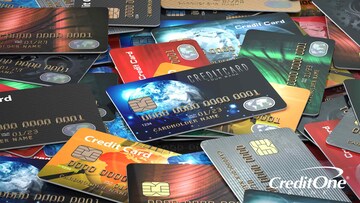
Whether you’re 18 or 48 years old, receiving your first credit card is a big deal. As with most things in life, a credit card has advantages and disadvantages; it all depends on how you use it. So, regardless of which card you have, or get, here are three things to keep in mind about credit cards:
1. You’re building your credit history, which will affect your credit future.
Unless you already have auto loans, student loans, or mortgages, your first credit card is typically the first chapter in what will become your credit history. (If you already have other loans, then your credit card is an important additional chapter.) Why does this matter? Because your ability to pay your credit card bill each month will be tracked on your credit report, which will, in turn, be reflected in your credit score.
Your credit report and score are what future lenders will use to assess your creditworthiness, so your history of paying your credit card bill will have an impact on whether you’ll be able to borrow money for a home or a car in the future—and the loan terms and interest rates you’ll receive. Whether that impact is positive or negative depends on the history you are creating now.
2. Your credit history could affect your overall future.
Potential lenders aren’t the only ones who review your credit report and score. Increasingly, apartment landlords and even employers access your history when deciding whether to let you rent an apartment or hire you for a job. In addition, many insurance companies factor in your credit history when considering the premiums they charge you. The point is that your ability to handle your first credit card can have far-ranging consequences on your everyday life in the future beyond just your ability to borrow money.
3. Think twice before closing your first credit card account or applying for a second one.
Besides your history of paying your bills, other factors influence your credit score. One of these is your credit utilization rate (or ratio), which is simply your total revolving debt divided by your total available revolving credit. Your credit utilization rate is commonly expressed as a percentage, and credit scorers favor a lower percentage.
Anytime you close a credit card account, you are lowering the amount of credit you have available and are therefore increasing your credit utilization percentage, which will likely have a negative impact on your credit score. By contrast, if you successfully apply for a second credit card, you are increasing the available amount of credit you have, which will lower your credit utilization rate and likely have a positive impact on your credit score.
By that logic, you may conclude that it’s best to open as many credit card accounts as you can. But it’s not that simple because another factor in determining your credit score is the number of “hard inquiries” you have. In the credit world, a hard inquiry occurs whenever you apply for credit, because the lender then “inquires” about your credit, meaning they accessed your credit report to assess your creditworthiness.
These hard inquiries accumulate on your credit report, and they tend to negatively impact your score, especially if multiple inquiries occur within a short period of time. That’s because all of these inquiries are sending a warning signal that you may be overextending your borrowing, which could jeopardize your ability to pay current and future bills.
When it comes to credit cards, aside from paying your bills on time, there are very few simple “right” and “wrong” answers that apply to everybody, because all of our situations are different. But being aware of the different effects of your choices will hopefully allow you to make smarter decisions with your first credit card as you build a positive credit history.



